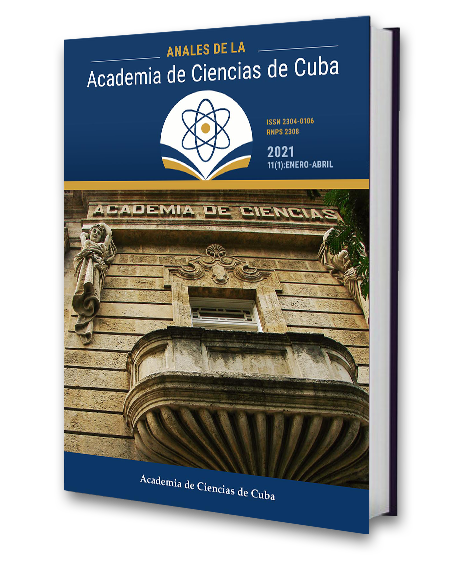Autoantibodies for diagnostic and prognostic in rheumatoid arthritis: Cuban immunoassay with citrullinated fibrinogen peptide
Keywords:
rheumatoid arthritis, antibodies against citrullinated peptides, fibrinogenAbstract
Introduction: Rheumatoid arthritis (RA) is a chronic and inflammatory disease characterized by presence of autoantibodies. Objective: to develop Cuban immunoassays to determine antibodies and evaluate the usefulness of antibodies against a citrullinated fibrinogen peptide for diagnosis and therapeutic clinical assessment of patients with RA.
Methods: A case-control study was conducted. Participants were 162 patients with RA, 112 patients with other diseases and 50 healthy individuals. The analytical and diagnostic performance of a novel immunoassay was evaluated to determine antibodies against a citrullinated fibrinogen peptide designed by computer, rheumatoid factor and antiqueratin antibodies. Commercial rheumatoid factor antibodies, second generation citrullinated peptides, mutated citrullinated vimentin, carbamylated vimentin and antiqueratin were determined by commercial immunoassays. A longitudinal study was conducted on 60 patients with early RA. Antibodies, C-reactive protein, erythrocyte sedimentation rate, activity index and response to methotrexate after six months were determined.
Results: Three immunoassays were introduced into practice. The diagnostic performance of the antibodies against the citrullinated fibrinogen peptide was superior to the most commonly used commercial immunoassays, with a lower cost per patient (5,52 CUC) than the second-generation antibodies (14,00 CUC). Patients with these antibodies had a higher risk for greater activity (risk = 0,96; p = 0,0424) and low response to treatment (risk = 0,82; p = 0,0402). The determination of antibodies against a novel citrullinated fibrinogen peptide has lower cost and great utility for the diagnosis and therapeutic clinical evaluation in RA.
Downloads
Downloads
Published
How to Cite
Issue
Section
License
The journal Anales de la Academia de Ciencias de Cuba protects copyright, and operates with a Creative Commons License 4.0 (Creative Commons Attribution-NonCommercial License 4.0). By publishing in it, authors allow themselves to copy, reproduce, distribute, publicly communicate their work and generate derivative works, as long as the original author is cited and acknowledged. They do not allow, however, the use of the original work for commercial or lucrative purposes.
The authors authorize the publication of their writings, retaining the authorship rights, and assigning and transferring to the magazine all the rights protected by the intellectual property laws that govern in Cuba, which imply editing to disseminate the work.
Authors may establish additional agreements for the non-exclusive distribution of the version of the work published in the journal (for example, placing it in an institutional repository or publishing it in a book), with recognition of having been first published in this journal.
To learn more, see https://creativecommons.org






